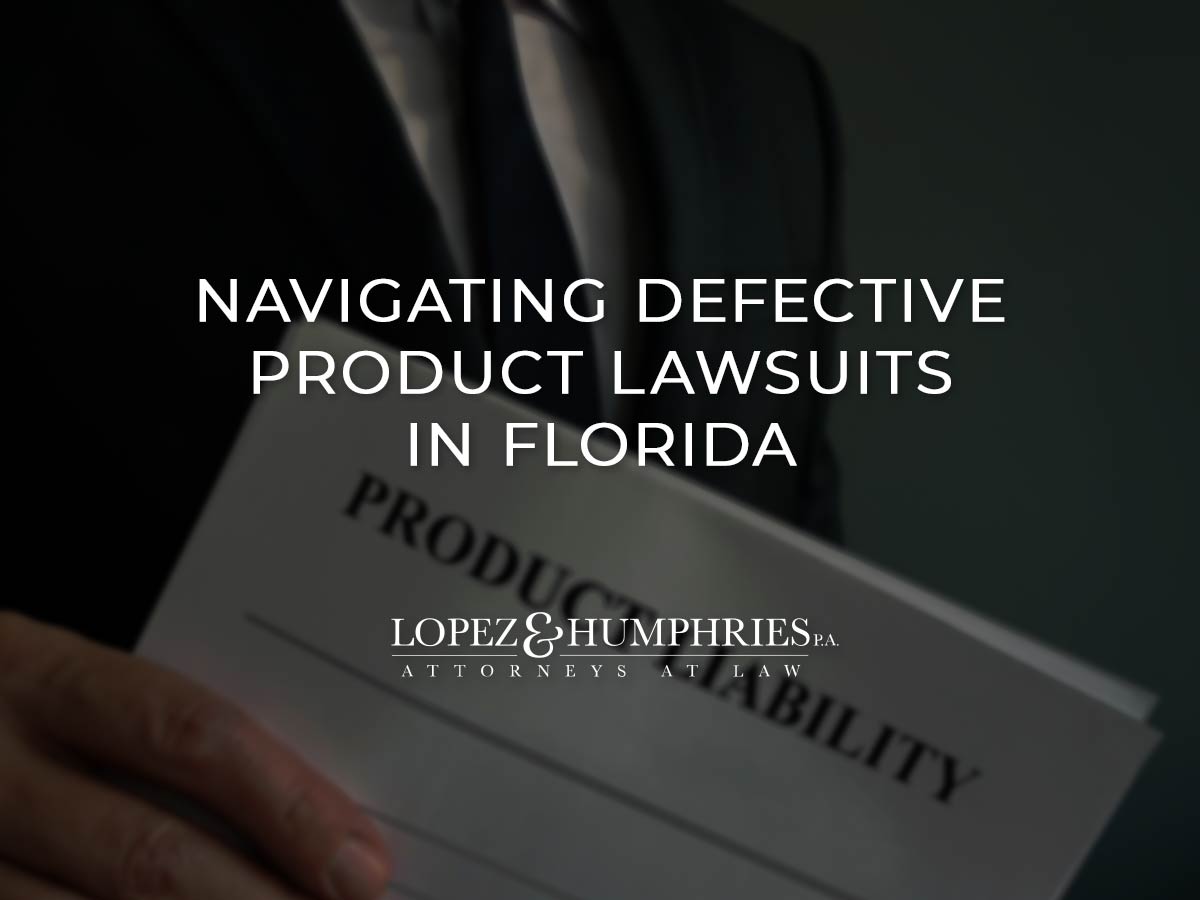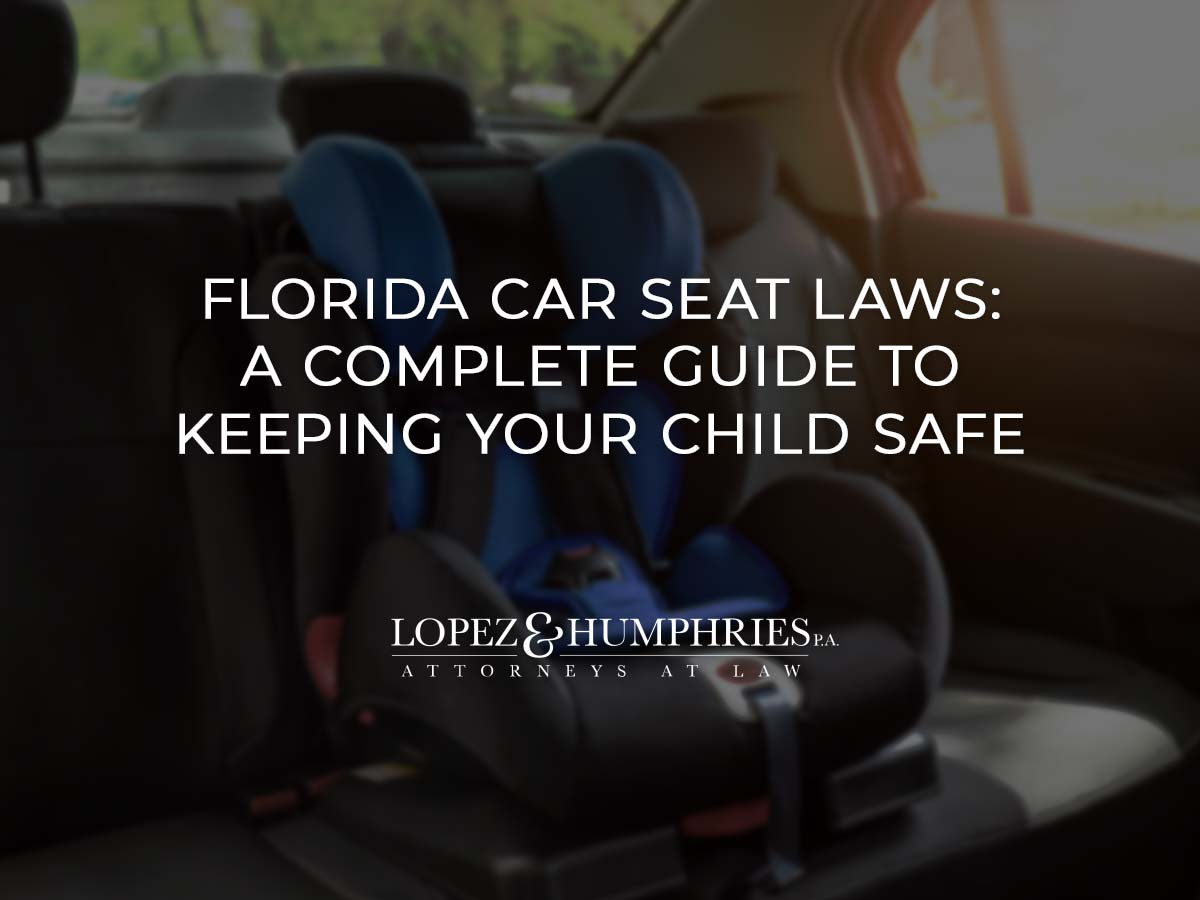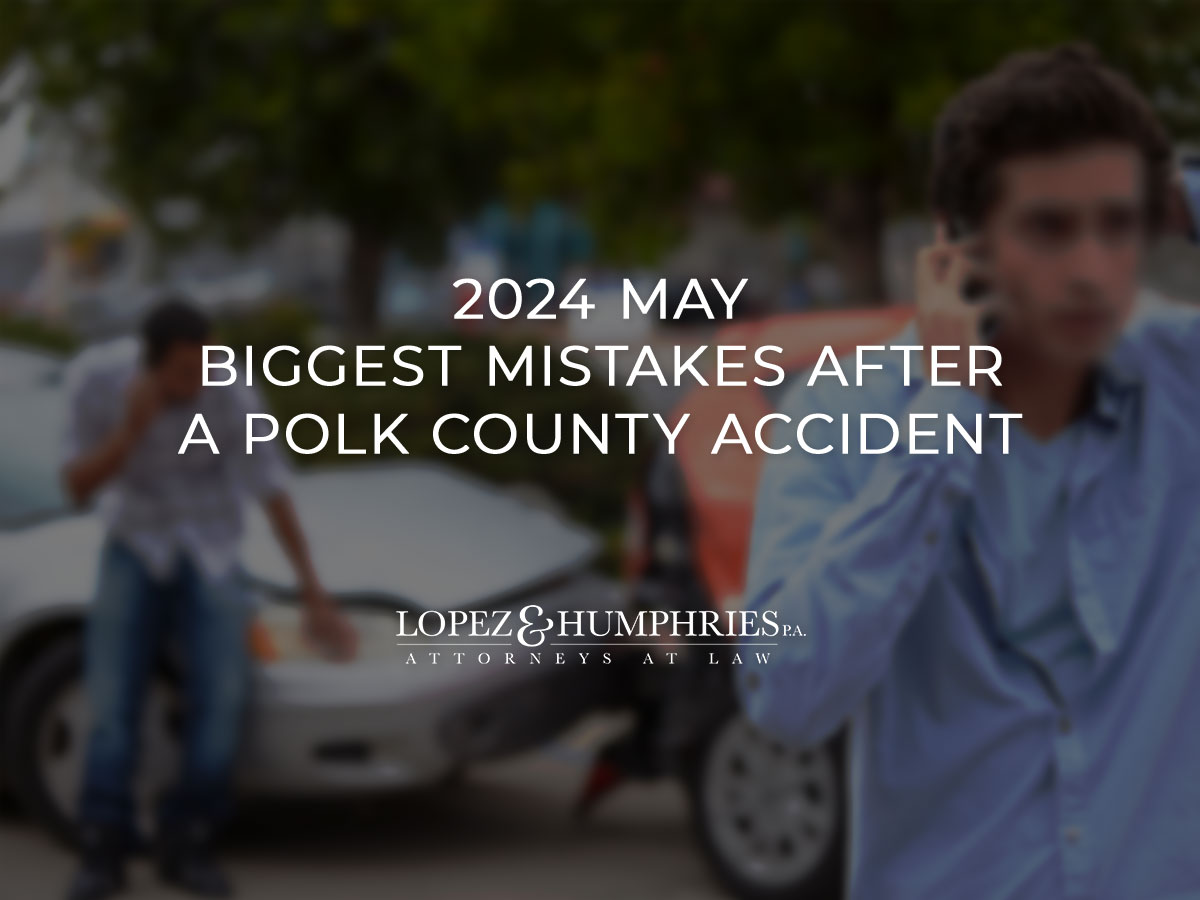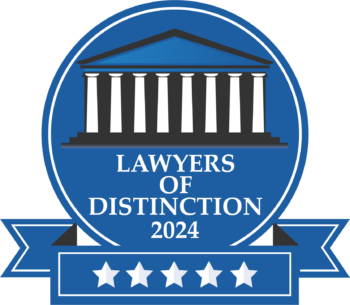Car accidents can be unsettling experiences, and the process of handling the aftermath in Lakeland, Florida, often involves multiple steps that require prompt and informed action. Those interested in such incidents should act quickly to protect their rights and start the compensation claim process.
Documenting the scene, gathering evidence, and exchanging information with the other parties involved is essential. Reporting the accident to law enforcement and insurance providers is also integral to the initial stages.
Insurance claims and legal proceedings in Lakeland follow specific protocols. Drivers are usually required to provide their insurance policy number and details about the accident—including the date, time, location, and circumstances—to their insurance company.
Seeking legal counsel from attorneys experienced in car accident cases can be invaluable. These professionals are well-versed in the intricacies of personal injury law and can offer comprehensive guidance throughout the claims process, from negotiation to potential litigation.
The timeline for settling an auto accident claim can vary considerably based on the complexities of the case. Key factors include the extent of property damage, the injuries sustained, and the level of cooperation from insurance companies.
Experienced attorneys in Lakeland, like López & Humphries, PA, can ensure that the process is managed efficiently, representing claimants’ interests in negotiations with insurance providers and, if necessary, in court to secure fair compensation. Contact us now for a free consultation!
Understanding Car Accident Laws in Lakeland
Florida’s legal landscape is often unique, and Lakeland is no exception, especially regarding car accident laws.
No-Fault Insurance System
In Lakeland, as part of Florida, motorists must know that the state operates under a no-fault insurance system. Following an accident, each party’s insurance is expected to pay for their medical expenses and lost wages, regardless of who is at fault.
To fulfill this requirement, drivers must carry a minimum of:
- $10,000 in personal injury protection (PIP)
- $10,000 in property damage liability (PDL)
Filing a Fault-Based Claim
Although Florida is a no-fault state, drivers can step outside this system and file a fault-based claim if they meet a certain threshold. This typically involves cases where there are:
- Serious injuries
- Permanent injuries
- Significant and permanent scarring
- Disfigurement
Under these circumstances, it’s possible to pursue compensation from the at-fault driver.
Statute of Limitations
For those considering legal action, there’s a time limit. The statute of limitations for car accident lawsuits in Florida is generally four years for personal injury and two years for wrongful death. It’s vital to remember these timelines to preserve the legal right to compensation.
Comparative Negligence
Lakeland adheres to a comparative negligence rule, which means that if a party is partially at fault, their compensation may be reduced by their percentage of fault. Understanding this can be integral to negotiating settlements or preparing for litigation. Drivers, passengers, and pedestrians should ensure they comprehend these essentials to navigate the aftermath of a car accident effectively.
Steps to Take Immediately After a Car Accident
Specific steps are vital for legal and safety considerations in the immediate aftermath of a car accident in Lakeland. The sequence of actions you take can affect both the well-being of those involved and the outcome of any potential legal action.
Ensuring Safety at the Accident Scene
- Prioritize Safety: If a car accident occurs, assessing whether anyone is injured is critical. Call 911 immediately if there are any signs of injury. If a vehicle poses a safety threat due to its position or damage, activate hazard lights and, if possible, move to a safe location.
- Secure the Area: To prevent further accidents, set up flares or reflective triangles if you have them. This alerts oncoming traffic to the hazard ahead.
Information Exchange and Documentation
- Exchange Details: Parties involved should exchange contact and insurance information. Include names, addresses, phone numbers, insurance companies, policy numbers, driver’s licenses, and license plate numbers.
- Document the Scene: Photographing the accident scene, including vehicle damage and any relevant road conditions or signs, can be crucial evidence. A detailed account of the incident should be recorded while memories are fresh.
Reporting the Accident
- Contact Law Enforcement: In Lakeland, it’s essential to report the accident to the police, mainly if there are significant injuries or property damage. A police report provides an official event record, which may be necessary for insurance or legal processes.
- File an Accident Report: Even if law enforcement does not come to the scene, an accident report can often be filed later. This report is a legal requirement in many cases and is an important document when filing insurance claims.
Seeking Medical Attention
After a car accident in Lakeland, individuals need to seek immediate medical attention, regardless of whether injuries are immediately apparent. Some injuries, like whiplash or internal trauma, may not exhibit symptoms right away. Prompt medical evaluation ensures that any hidden injuries are diagnosed and treated early, which can prevent complications.
Steps to take:
- Call for an Ambulance: If there are any severe injuries, it’s crucial to dial 911 for emergency medical services.
- Visit an Emergency Room or Urgent Care: For less critical injuries or doubt, it’s advisable to go to the nearest emergency room or urgent care facility.
- Follow Up With a Specialist: They may advise seeing a specialist for particular types of injuries sustained.
Documentation is Necessary:
- Obtain medical records and reports that detail the injuries and treatments.
- Keep a log of symptoms and how they affect daily life.
- Preserve all receipts and bills related to medical care.
Importance in Legal Context:
- Medical records serve as crucial evidence when seeking compensation.
- A gap in treatment may be misconstrued as an indicator that the injuries are not severe.
Choosing healthcare providers experienced in treating car accident injuries is essential, as they will be familiar with the necessary documentation for legal proceedings. Remember, prioritizing health can expedite the legal process by substantiating the claim with concrete medical evidence.
Consulting a Car Accident Attorney
After a car accident in Lakeland, consulting with a qualified attorney can significantly affect the outcome of a case. The proper legal representation helps navigate the complexities of car accident claims and ensures a fair chance at receiving appropriate compensation.
Choosing the Right Attorney
When selecting an attorney, it is crucial to consider their experience and track record with car accident cases in Florida. Prospective clients should look for lawyers who clearly understand Lakeland’s traffic laws and personal injury statutes.
- Experience: Seek attorneys with a substantial background in handling car accidents.
- Reputation: Check client reviews and peer ratings.
- Specialization: Choose a lawyer specializing in car accidents, which indicates their capability in this area.
- Local Presence: An attorney familiar with the Lakeland area may bring beneficial local insight.
Initial Consultation and Case Evaluation
During the initial consultation, an attorney will typically review the details of the car accident to evaluate the strength of the case. This step is vital for injured parties to understand their legal rights and the potential for compensation.
- Case Details: Provide the attorney with all pertinent information about the accident.
- Legal Rights: A knowledgeable lawyer will inform clients about their legal rights.
- Potential Outcomes: The attorney should offer a realistic assessment of the possible results of the claim.
- No Obligation: Most Lakeland attorneys offer free initial consultations, which carry no obligation to retain their services.
Choosing a competent car accident attorney and conducting a prudent initial consultation are decisive first steps toward pursuing a car accident claim in Lakeland.
Filing an Insurance Claim
In a car accident, initiating an insurance claim is a crucial step. The process involves prompt notification of the insurance company and a thorough understanding of the insurance policy coverage.
Notifying Your Insurance Company
An individual must notify their insurance company immediately after a car accident. Information typically required includes the time and location of the accident, a description of the incident, the extent of any injuries, and the damages to the vehicle.
- Contact: The insurance agent or company’s claim hotline must be contacted.
- Policy Number: Keep your policy number ready for reference.
- Details: Be prepared to provide all relevant information about the incident.
Understanding Insurance Policy Coverage
Understanding the specifics of one’s insurance policy is crucial for a successful claim.
- Policy Limits: Know the coverage limits to assess how much the insurance may pay.
- Deductibles: Be aware of the deductible and how it affects the claim.
- Coverage Types: Understanding collision, comprehensive, and liability coverage differences.
- Collision coverage covers damages to your car from an accident with another vehicle.
- Comprehensive coverage handles non-collision-related damages, such as theft or weather damage.
- Liability coverage helps with expenses if you’re at fault in an accident causing damage or injury to others.
Investigation and Evidence Gathering
Thorough investigation and meticulous evidence gathering are essential in building a robust car accident case. This process involves reconstructing the accident and obtaining witness statements to establish the facts and determine liability.
Accident Reconstruction
Accident reconstruction specialists are integral to understanding the dynamics and impact of a car crash. They employ scientific and engineering principles to decode the events leading up to and during the collision.
Reconstruction involves:
- Analyzing skid marks
- Assessing vehicle damage
- Reviewing traffic and surveillance footage
- Applying formulas to estimate vehicle speeds
This analysis elucidates the crash sequence, contributing factors, and potential fault.
Witness Statements
Witness statements provide crucial, unbiased perspectives on the accident. Investigators will:
- Identify Witnesses: Including bystanders, passengers, and other drivers.
- Collect Detailed Accounts: Noting the date, time, and environment during the incident.
Accurate witness testimonies can corroborate evidence from the scene and contribute to a clear understanding of the event, reinforcing the victim’s claim.
Negotiation With Insurance Adjusters
Negotiating with insurance adjusters is a critical step in the aftermath of a car accident. Typically, the negotiation begins once the injured party makes a personal injury claim to the at-fault party’s insurer. It is an attempt to settle the matter without proceeding to trial, with the objective being to agree on fair compensation.
The key components of negotiation include:
- Assessment of Damages: They must calculate the total cost of the victim’s injuries, medical bills, lost wages, pain and suffering, and other related damages.
- Initial Offer and Counteroffers: The adjuster will start with an initial low offer. Often through a lawyer, the injured party can counter with a more realistic amount.
- Evidence Presentation: Proving the extent of injuries and other losses is crucial, which involves presenting medical records, repair bills, and other documentary evidence.
- Dispute Resolution: The insurance adjuster can question claims and dispute facts to limit the insurer’s payout. It’s here where negotiation skills matter most.
Effective Strategies in Negotiation include:
- Maintaining Clear Records: Keeping detailed documentation supports the claimant’s position.
- Understanding Policy Coverage: They should know what the policy covers and its legal implications.
- Professional Legal Representation: A seasoned car accident lawyer can navigate the complexities of these negotiations, often securing more favorable outcomes for the claimant.
Negotiations are an intricate dance requiring patience, persistence, and knowledge. An equitable settlement can be reached with successful negotiation, providing the compensation the victim deserves without court intervention.
Car Accident Lawsuit Process
In Lakeland, Florida, individuals involved in car accidents have specific timelines and procedures to follow when navigating the lawsuit process. Adherence to these steps is critical for a successful claim.
Filing the Lawsuit
To initiate a lawsuit, the plaintiff must file a complaint within four years of the car accident date for personal injury or property damage claims. In cases of wrongful death, the timeline is shortened to two years from the date of the deceased’s passing. This complaint outlines the legal arguments, the facts of the case, and the damages sought.
Discovery Phase
After the lawsuit is filed, both parties enter the discovery phase. Each party investigates the other’s legal claims and defenses during this period. They exchange documents, such as accident reports, medical records, and witness statements, and conduct depositions to gather detailed information about the case.
Pre-Trial Motions and Settlement
Before trial, parties may file pre-trial motions to resolve procedural issues or to dismiss parts of the case. Often, a settlement is reached during this phase. If an agreement is made, it typically includes compensation for damages and an agreement to forgo a trial. If no settlement is achieved, the case proceeds to trial.
Trial Preparation and Strategy
Proper preparation for a trial is crucial for the success of a car accident case in Lakeland. This involves a meticulous approach to selecting a jury and presenting evidence and arguments effectively.
Selecting a Jury
The jury selection process, known as voir dire, is the first step in a trial whereby attorneys for both parties question potential jurors. The goal is to ascertain impartial individuals who can judge the case based on the evidence presented.
Juror challenges can be used to dismiss certain jurors: a peremptory challenge does not require a reason, whereas a for-cause challenge requires specific reasons indicating that a juror cannot be impartial.
Presenting Evidence and Arguments
Once the jury is selected, the trial moves into the evidence presentation phase. Here, the plaintiff’s attorney will introduce physical evidence, such as accident reports and medical records, to establish the defendant’s liability.
Witness testimonies, including those from expert witnesses, lay the foundation for the plaintiff’s case by providing specialized knowledge or personal accounts pertinent to the accident. Clear visuals and logical arguments are crucial to articulating the connection between the defendant’s actions and the plaintiff’s injuries. The defense will similarly present its evidence and witnesses to counter the plaintiff’s assertions.
Verdict and Award
In Lakeland, car accident cases may culminate in a verdict or an award if a settlement cannot be reached outside of court. This typically happens after a trial where both parties present their evidence and arguments before a judge or jury.
Jury Verdicts:
- A jury assesses the facts presented during the trial.
- They determine liability (who is legally at fault) and damages owed to the plaintiff.
- The verdict includes the monetary figure the at-fault party must pay the victim.
Court Awards:
- If a judge presides over the case without a jury, they make the final decision.
- After considering all the evidence, the judge has the authority to award damages to the plaintiff.
Damages typically accounted for in verdicts and awards may include:
- Economic Damages include medical expenses, lost income, and property damage.
- Non-Economic Damages: For pain and suffering, emotional distress, and loss of consortium.
In certain instances where the defendant’s conduct is exceedingly terrible, punitive damages may be awarded to punish the wrongdoer and deter similar future conduct.
With that being said, victims should consult with a knowledgeable Lakeland car accident lawyer to navigate the trial process and understand the potential outcomes of their case. An experienced attorney can guide the likelihood of achieving a favorable verdict or award and the estimated value of such compensation.
Post-Trial Actions
After a car accident case concludes in Lakeland, the post-trial phase can be as critical as the trial. This phase includes the appeals process and the collection of damages, each with specific protocols to follow.
Appeals Process
They can appeal the decision if either party is dissatisfied with the trial’s outcome. The appellant must file a notice of appeal within a prescribed time frame, typically 30 days after the judgment is rendered. This legal recourse allows a higher court to review the trial court’s proceedings for any legal errors that may have influenced the verdict or the awarded damages.
Collection of Damages
The prevailing party is responsible for collecting damages upon receiving a favorable verdict.
Options include:
- Writ of Execution: If payment is not forthcoming, the court may authorize law enforcement to seize assets.
- Garnishment: The court can order the debtor’s employer to withhold a portion of wages to satisfy the debt.
The responsible party’s insurance may cover the settlement. The plaintiff may need to explore these legal mechanisms to collect the awarded damages if insurance is insufficient or non-existent.
For reliable guidance and assistance in navigating these legal avenues, contact López & Humphries, PA. Our experienced team is dedicated to ensuring you receive fair compensation.
Frequently Asked Questions
-
What are the steps involved in resolving a car accident case in Lakeland?
In Lakeland, resolving a car accident case typically involves gathering evidence and filing a claim with the insurance company. It may include negotiating settlements or, if necessary, filing a lawsuit to pursue court awards. Cases can be resolved either outside of court through settlement discussions or inside the courtroom through litigation.
-
How long does the settlement process typically take following a car accident in Florida?
The settlement process for a car accident in Florida varies significantly. It can take anywhere from a few months to several years, depending on the case’s complexity, the cooperation of the involved parties, and the court’s schedule.
-
What factors influence the average compensation for a car accident settlement in Florida?
Factors influencing the compensation include the severity of the injuries, associated medical costs, loss of wages, pain and suffering, and the degree of fault attributed to each party. Each case is unique, and the compensation will reflect the specific circumstances of the accident.
-
Which recent legislative changes have affected car accident cases in Florida?
Recent legislative changes affecting car accident cases include updates to personal injury protection (PIP) rules and modifications related to texting while driving and strengthening distracted driving laws. These changes can influence liability and damages awarded in car accident cases.
-
What are the legal requirements for reporting a car accident in Lakeland?
Florida law requires that any car accident involving significant property damage, injury, or death be reported immediately to the local police department, county sheriff, or Florida Highway Patrol. A written report is also mandatory if the accident results in death, injury, or property damage of at least $500.
-
How can the involvement of personal injury attorneys impact the outcome of a car accident case in Florida?
Personal injury attorneys can significantly impact the outcome by providing expert guidance through the complex legal landscape, negotiating settlements, organizing evidence, and representing the client’s interests in court. Their expertise often leads to more favorable compensation for damages and injuries sustained.










